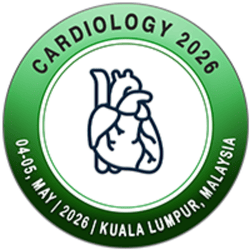Track: Heart Disease in Women

“Understanding Gender-Specific Aspects of Cardiovascular Health”
The "Heart Disease in Women" session will focus on the unique aspects of cardiovascular disease as it affects women. This session will address gender differences in the presentation, risk factors, and management of heart disease, aiming to enhance awareness and improve care strategies tailored to women’s cardiovascular health.
Key Topics and Highlights:
Gender Differences in Heart Disease: Explore how cardiovascular disease presents differently in women compared to men. This includes differences in symptoms, disease progression, and outcomes. This segment will cover how heart disease may manifest atypically in women and the implications for diagnosis and treatment.
Risk Factors Unique to Women: Review the risk factors that are specific to women or that impact women differently. This includes hormonal influences (e.g., effects of menopause and oral contraceptives), pregnancy-related conditions (e.g., preeclampsia), and autoimmune diseases (e.g., lupus and rheumatoid arthritis) that can increase cardiovascular risk.
Management and Treatment Approaches: Topics will include pharmacological treatments, lifestyle modifications, and interventions. This segment will also cover gender-specific considerations in the management of common cardiovascular conditions, such as coronary artery disease, heart failure, and hypertension.
Case Studies and Interactive Discussions: Engage in interactive case studies that highlight gender-specific issues in cardiovascular care. Participants will analyze real-world cases to understand the nuances of diagnosing and managing heart disease in women and discuss best practices.
Impact of Heart Disease on Women’s Quality of Life: Examine how heart disease affects women’s quality of life, including psychological, social, and functional impacts. This segment will focus on strategies for improving quality of life through comprehensive care and support.
Preventive Measures and Education: Discuss preventive measures and educational strategies aimed at reducing cardiovascular risk in women. Topics will include lifestyle interventions, awareness campaigns, and the role of healthcare providers in promoting heart health among women.
Emerging Research and Future Directions: Explore the latest research and future directions in understanding and managing heart disease in women. This includes new studies, emerging therapies, and the potential for personalized approaches based on gender differences.
Summary:
The "Heart Disease in Women" session provides a comprehensive examination of cardiovascular disease as it uniquely affects women. By addressing gender-specific risk factors, diagnostic challenges, treatment approaches, and real-world case studies, this session aims to improve participants' understanding of women’s cardiovascular health and enhance their ability to provide tailored care.
Scientific Highlights
- Cardiovascular Diseases
- Interventional Cardiology
- Vascular Biology
- Cardio Oncology
- Nuclear Cardiology
- Cardiovascular Pharmacology
- Cardiac Transplantation
- Paediatric Cardiology
- Diabetic Cardiomyopathy
- Clinical Cardiology
- Hypertension
- Electrocardiography
- Sports in Cardiology
- Cardiovascular Toxicology
- Clinical Case Reports on Cardiology
- Complications Of Heart Illness & Failure
- Heart Disease in Women
- Cardiovascular Surgery
- Cardiac Devices & Diagnosis
- Advancements and Current Research in Cardiology
- Advances In Cardiovascular Imaging
- AI in cardiology
- Impact of PCOS in cardiology


